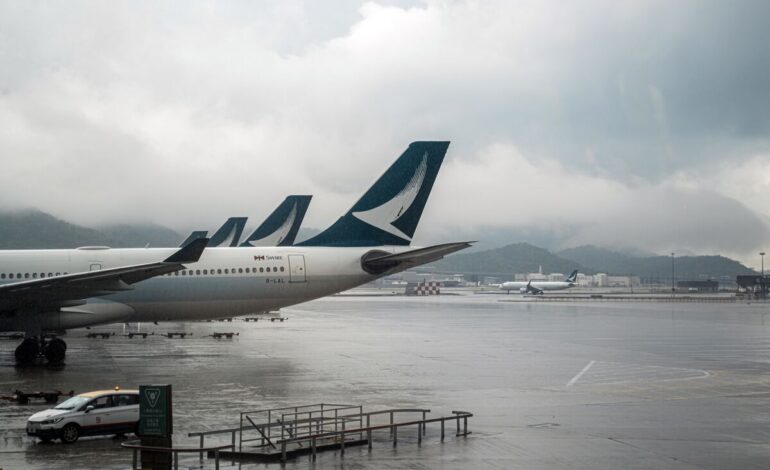
Typhoon Threat: Cathay Pacific Cancels Flights as Storm Approaches Hong Kong
With a powerful typhoon approaching Hong Kong, Cathay Pacific has taken the decisive step of canceling all Sunday flights. This measure aims to ensure passenger safety and minimize logistical challenges posed by severe weather. This article provides a comprehensive overview of the situation, the airline’s response, and the broader implications for travelers and the aviation industry.
Understanding the Threat: Typhoon’s Impact on Hong Kong
The typhoon’s approach has prompted widespread concern across Hong Kong, known for its susceptibility to severe weather patterns. Authorities have issued warnings, and residents are preparing for potential outages and disruptions. The natural geography of the region, coupled with dense urban development, compounds the risks associated with such storms. Understanding these factors is crucial to grasp the gravity of Cathay Pacific’s response.
Cathay Pacific’s Response: Prioritizing Safety
Cathay Pacific’s decision to cancel Sunday flights highlights a commitment to passenger safety. By grounding flights amid uncertain weather conditions, the airline aims to avoid stranding passengers and ensure minimal risk during the storm. This decisive action is a part of the airline’s broader strategy to navigate unpredictable challenges posed by climate change and natural disasters.
Traveler Implications: Navigating Flight Disruptions
The cancellation of flights inevitably impacts travel plans, leaving passengers to reschedule or seek alternative transportation. For many, this underscores the importance of flexible travel arrangements and proactive communication with airlines. Understanding the terms and conditions of bookings, including refund and rebooking policies, is essential during such disruptions. Passengers are advised to stay informed and check for updates regularly.
Broader Context: The Airline Industry and Weather Challenges
This situation is a reminder of the broader impacts of severe weather on the global airline industry. As climate change contributes to more frequent and intense weather patterns, airlines must adapt through strategic planning and investment in resilience. The industry’s response to these challenges is critical in maintaining operational stability and providing reliable services despite natural disruptions.
Conclusion
As Hong Kong braces for the impending typhoon, Cathay Pacific’s preemptive flight cancellations reflect a proactive approach to ensuring safety and managing operational challenges. This situation underscores the importance of adaptable travel plans and effective communication between airlines and passengers. As the airline industry faces frequent weather disruptions, strategic planning remains key to mitigating impacts.






